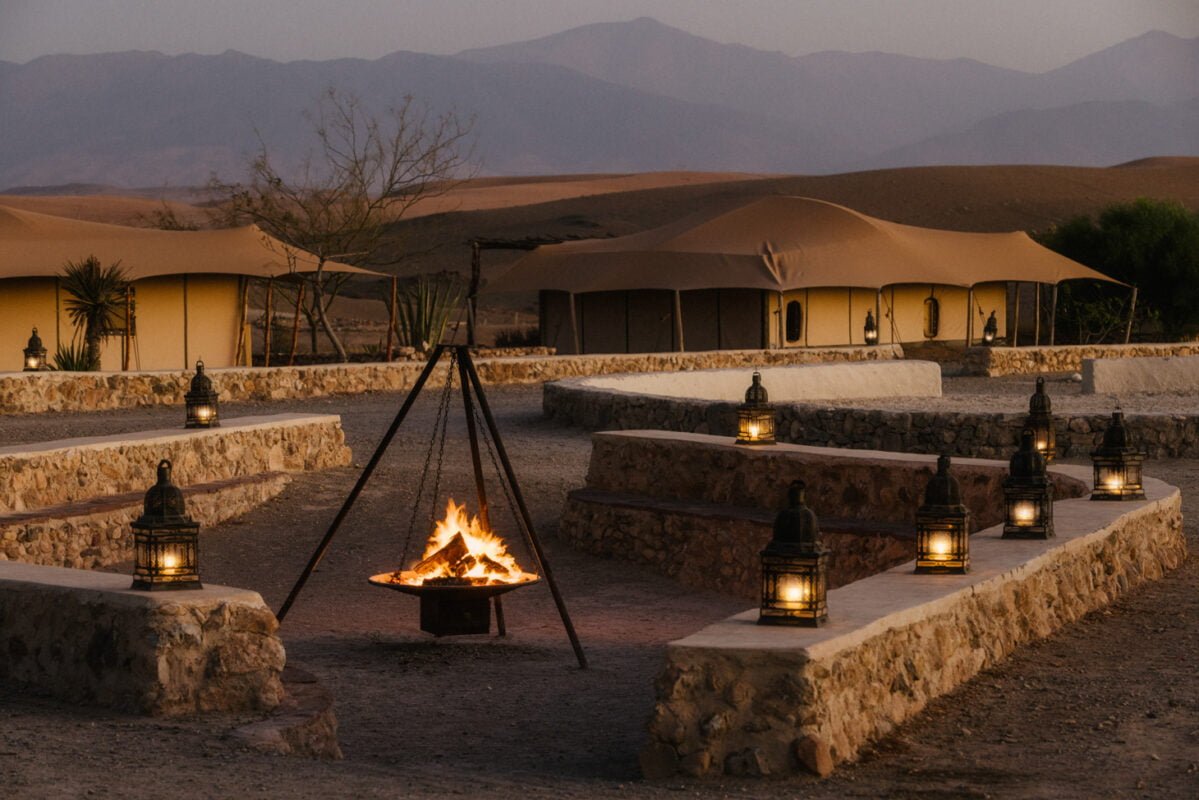The smoke is warm and woody. A gust of dry desert wind blows the heady plumes of incense away. At Habitas’s outpost in Morocco’s Agafay desert, a special ceremony welcomes visitors. Salabane, a tree resin found in North Africa, is sprinkled over charcoal to clear negative energy. A pinch of black cumin or pepper is added to a small clay pot of dark, loam soil.
Travellers and local people alike go to the Agafay desert to get away from the city. The low-profile buildings with flat roofs turn into rolling rocky dunes. But the desert is an ancient place of transformation and healing. In religious books, the landscape is a place where people pray and do penance. People have traveled to holy cities or faced inner struggles. It feels good to be in the desert with its dry heat and hot sun shining through the windows of the fancy tents in the morning.
Johanna Burkart, the camp’s resident yoga teacher, weaves yoga and meditation into her approach to wellness. During a ceremony with candles and a full moon, lamps hanging from the ceiling make kilim carpets glow. The full moon in Virgo invites us to think about where we might need less or more order in our lives.
Guests can pick zucchini and carrots from the camp’s organic garden in the morning sunshine. Lahcen Essadik, the chef and garden manager, leads visitors through the Edenic gardens filled with orange, argan, and olive trees. Everything from kale and turnips to rosemary and lavender grows in the soil. Essadik says the garden of good intentions is here to feed us and our guests.
A cooking class uses fresh herbs and vegetables in an open-air tent made by the Amazigh people, who live in North Africa. Chef Rachida makes lemon chicken tagine by cutting vegetables, adding spices like saffron, ginger and turmeric, and adding olive oil and water. The conical earthenware is placed on a bed of coals to slow cook. Lunch is served on the restaurant terrace with warm bread. In the evening, fresh garden rosemary and mint are mixed into cocktails as the tangerine sun sets over the dunes.
Guests also enjoy the warm sun, fresh food from the garden, and green spaces here. The camp has many animals, including goats that bleat, chickens that squawk, and a family of donkeys. Tibari, a three-month-old donkey, greets guests each morning over coffee. He eats the sugar cubes that are offered to him.
The camp offers traditional Moroccan wellness treatments like argan oil massages, but it’s the connection to the natural world and a renewed awareness of the senses that are the most rejuvenating. The warm desert sun and wind, the taste of lemon, and the smell of orange trees last.
